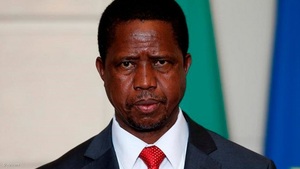This marks the beginning of a five-year transition under a new charter that replaces the country’s constitution. Tchiani, who led the military coup that deposed President Mohamed Bazoum in July 2023, has also been promoted to the highest rank in the army.
In a bold move consolidating his grip on power, Tchiani issued a decree dissolving all political parties, effectively silencing opposition groups and reinforcing military rule. His rise to the presidency follows a national conference in Agadez, where delegates endorsed the transition plan, garnering support from various segments of society, including civil society organisations and women’s groups.
Austin Aigbe, a member of the West Africa Democracy Solidarity Network, believes Tchiani’s decision to adopt the presidential title is aimed at securing diplomatic legitimacy, particularly as Niger remains isolated from ECOWAS and the African Union. He explained, "He needed a title to be able to sit at international meetings such as the African Union or the United Nations. This move aligns with what we have seen in Mali and Burkina Faso, where junta leaders have elevated their ranks to consolidate their authority."
The dissolution of political parties has raised concerns about the junta’s long-term intentions. Aigbe warns that with no political opposition for at least five years, this transition may serve as a pathway for Tchiani to entrench his rule rather than lead to genuine democratic elections. "For the next five years, there will be no political activities at all. Any opposition will be operating at their own peril, as all political activities have been suspended. By the time elections come, Tchiani may have full control over the system, allowing him to remain in power indefinitely," he said.
Since seizing control, the junta has cracked down on dissent, with opposition figures arrested or exiled. The initial public support that greeted Bazoum’s removal, highlighted by anti-French protests and pro-Russian demonstrations, has been leveraged to justify stronger military control.
--ChannelAfrica--













